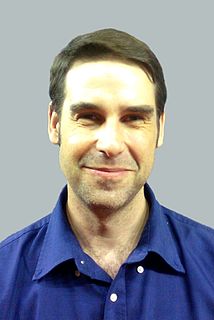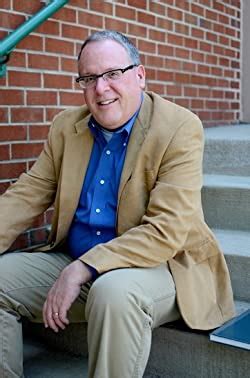A Quote by Alfred Lord Tennyson
There lives more faith in honest doubt, believe me, than in half the creeds.
Related Quotes
I have no doubt that faith is only pure when it does not negate the faith of another. I have no doubt that evil can be fought and that indifference is no option. I have no doubt that fanaticism is dangerous. And of all the books in the world on life, I have no doubt that the life of one person weighs more than them all.
Take faith, for example. For many people in our world, the opposite of faith is doubt. The goal, then, within this understanding, is to eliminate doubt. But faith and doubt aren't opposites. Doubt is often a sign that your faith has a pulse, that it's alive and well and exploring and searching. Faith and doubt aren't opposites, they are, it turns out, excellent dance partners.
I want nothing less than a faith founded upon a rock, faith in the constitution of things. The various man-made creeds are fictitious, like the constellations Orion, Cassiopeia’s Chair, the Big Dipper; the only thing real in them is the stars, and the only thing real in the creeds is the soul’s aspiration toward the Infinite.
As soon as we ask what faith is and what sort of mistreatment of faith causes doubt, we are led to the first major misconception about doubt-the idea that doubt is always wrong because it is the opposite of faith and the same thing as unbelief. What this error leads to is a view of faith that is unrealistic and a view of doubt that is unfair.
Faith always presented to the mind the idea of an abnormal intellectual condition, of the subversion or suspension of the critical faculties. It sometimes comprised more than this, but it always included this. It was the opposite of doubt and of the spirit of doubt. What irreverent men called credulity, reverent men called faith; and although one word was more respectful than the other, yet the two words were with most men strictly synonymous.
There is no logical reason to believe in God. There are emotional reasons, certainly, but I cannot have faith that nothing is something simply because it would be reassuring. I can no more believe in God than I can believe an invisible monkey lives in my ass; however, I would believe in both if they could be scientifically proven.
Doubt is most often the source of our powerlessness. To doubt is to be faithless, to be without hope or belief. When we doubt, our self-talk sounds like this: 'I don't think I can. I don't think I will.'... To doubt is to have faith in the worst possible outcome. It is to believe in the perverseness of the universe, that even if I do well, something I don't know about will get in the way, sabotage me, or get me in the end.





































